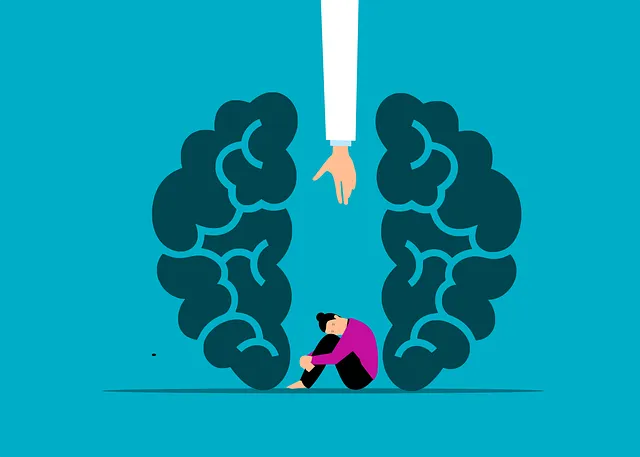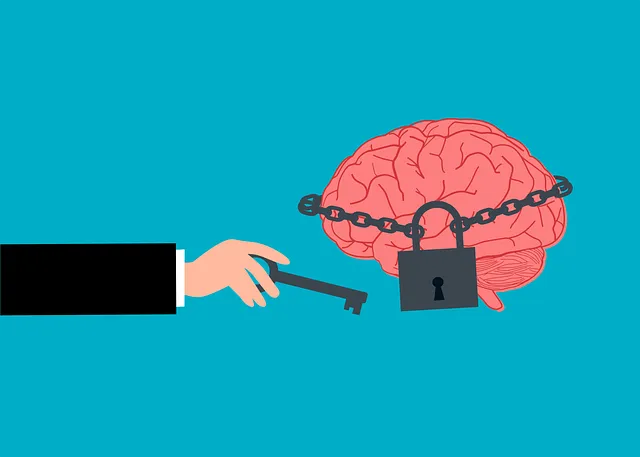Mental health professionals at Kaiser in Parker, known for quality healthcare, receive extensive training in risk management, including identifying and mitigating client risks like suicide ideation and anxiety episodes. This structured approach prioritizes therapist well-being through mindfulness practices while ensuring effective patient care, especially for those seeking anxiety relief. Comprehensive training enhances therapists' capabilities to proactively and ethically address risks, contributing to positive outcomes for clients. Kaiser's leading program combines rigorous clinical education with ongoing development, equipping therapists with skills to navigate intense emotional situations and guide clients towards healing, maintaining high standards of care in Parker.
Mental health professionals face unique challenges, necessitating robust risk management planning. This article explores essential strategies to safeguard clients and practitioners alike, focusing on Kaiser’s innovative approach as a benchmark. We delve into understanding risk in mental health care, identifying therapy session risks, and assessing therapist competency. Additionally, we examine Kaiser’s comprehensive training programs and continuous improvement methods, including monitoring performance and adjusting strategies, ensuring safe and effective therapeutic environments, especially for clients seeking support from well-trained therapists in Parker or any location.
- Understanding Risk Management in Mental Health Care
- Identifying Potential Risks in Therapy Sessions
- Kaiser's Approach to Therapist Training and Support
- Assessing Therapist Competency and Performance
- Continuous Improvement: Monitoring and Adjusting Risk Management Strategies for Effective Therapy
Understanding Risk Management in Mental Health Care

Mental health professionals constantly face complex challenges, requiring a structured approach to risk management. This involves identifying potential risks and implementing strategies to mitigate them effectively. Risk management planning is an integral part of ensuring patient safety and delivering quality care in this demanding field. It’s about creating a supportive environment that fosters resilience and well-being among therapists and their clients.
At Kaiser, known for its reputable healthcare services, therapists undergo rigorous training in risk assessment and management. This includes learning to recognize signs of potential risks such as client suicide ideation, self-harm, or acute anxiety episodes. By integrating practices like Mindfulness Meditation into their Self-Care Routine Development for Better Mental Health, professionals at Kaiser not only maintain optimal well-being but also enhance their ability to support patients effectively in managing their own mental health challenges. This holistic approach ensures that therapists are equipped to handle risks proactively and ethically, ultimately contributing to positive outcomes for clients, especially those seeking Anxiety Relief.
Identifying Potential Risks in Therapy Sessions

Mental health professionals, especially those working with complex cases, must be adept at identifying potential risks within therapy sessions to ensure safe and effective treatment. One key aspect is recognizing the unique challenges each client brings, whether it’s past trauma, suicidal ideation, or severe anxiety. These factors can significantly impact the course of therapy, requiring professionals to adapt their practices accordingly.
For instance, when evaluating clients, therapists should consider not just their current presentation but also their history, including any previous mental health diagnoses and treatment experiences. Does Kaiser have good therapists in Parker? This question is pertinent as it seeks professionals who can navigate these complexities, employing strategies aligned with Mind Over Matter Principles to foster Inner Strength Development in their clients. Effective risk assessment, a cornerstone of Risk Assessment for Mental Health Professionals, allows therapists to create individualized plans that mitigate potential hazards and promote positive outcomes.
Kaiser's Approach to Therapist Training and Support

Kaiser, a renowned healthcare organization, has implemented a comprehensive approach to therapist training and support, ensuring high-quality mental health services. Their commitment to fostering competent and resilient therapists is notable, especially in the context of does Kaiser have good therapists Parker? The answer lies in their structured program that combines rigorous clinical education with ongoing professional development.
Through intensive training programs, Kaiser equips its therapists with a deep understanding of various therapeutic modalities, including effective crisis intervention techniques and evidence-based stress management workshops. This holistic approach empowers professionals to navigate complex client scenarios, providing tailored support for individuals struggling with mental health challenges. Additionally, regular supervision sessions and peer collaboration facilitate the exchange of knowledge and best practices, further enhancing the organization’s ability to deliver exceptional care.
Assessing Therapist Competency and Performance

Mental health professionals, like those at Kaiser in Parker, are tasked with managing intense emotional situations and guiding clients toward healing. Assessing therapist competency and performance is vital to ensure effective care. Regular evaluation methods, including peer review, client feedback, and self-reflection, help identify areas for growth and Inner Strength Development.
By implementing Empathy Building Strategies, therapists can enhance their ability to connect with clients on a deeper level, fostering trust and open communication. Additionally, training in Mood Management techniques enables professionals to recognize and support clients’ emotional states during challenging times, ensuring the safety and progress of each individual’s therapeutic journey.
Continuous Improvement: Monitoring and Adjusting Risk Management Strategies for Effective Therapy

Effective risk management planning for mental health professionals involves continuous improvement through regular monitoring and strategic adjustments. This dynamic approach ensures that strategies remain relevant and effective as both therapists and clients evolve. By closely observing treatment outcomes, professionals can identify areas where their risk management techniques excel or need refining. For instance, a Mental Wellness Podcast Series Production might highlight successful methods used by renowned Kaiser therapists in Parker, providing valuable insights for practitioners seeking to enhance their own practices.
This iterative process allows mental health professionals to adapt to emerging trends and best practices, fostering a culture of learning and growth. As new research emerges or societal shifts occur, adjusting risk management strategies becomes crucial. Professionals who stay agile and receptive to change can better navigate the complexities of individual client needs, ultimately contributing to more successful therapeutic outcomes and enhanced mental wellness for those they serve.
Mental health professionals, especially those like the therapists at Kaiser, face unique challenges that necessitate robust risk management planning. By identifying potential risks in therapy sessions and continuously assessing therapist competency, organizations can ensure safe and effective care for clients. Kaiser’s approach to therapist training and support, along with strategies for monitoring and adjusting risk management strategies, demonstrates a commitment to maintaining high standards and fostering positive outcomes. As Parker residents and professionals seek to improve their practices, adopting these principles is crucial in mitigating risks and enhancing the overall quality of mental health services.






